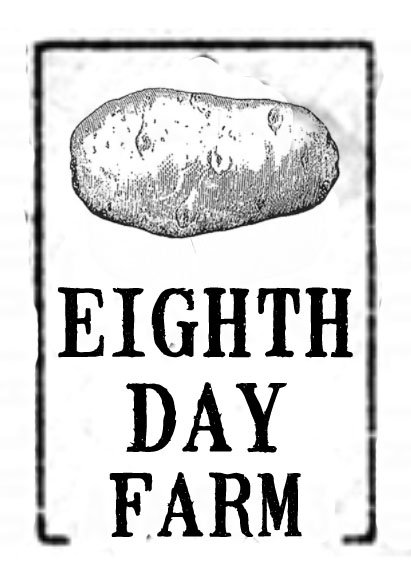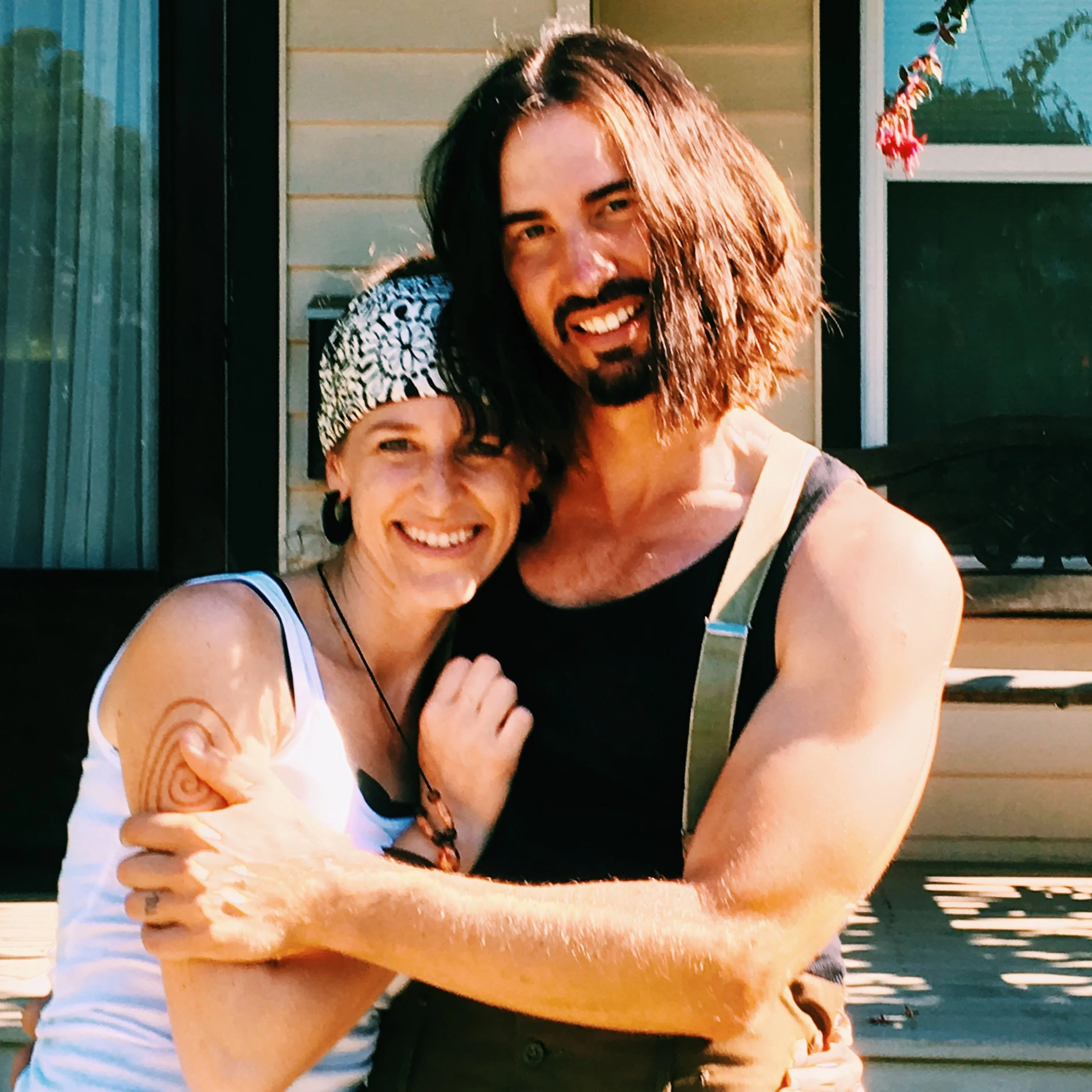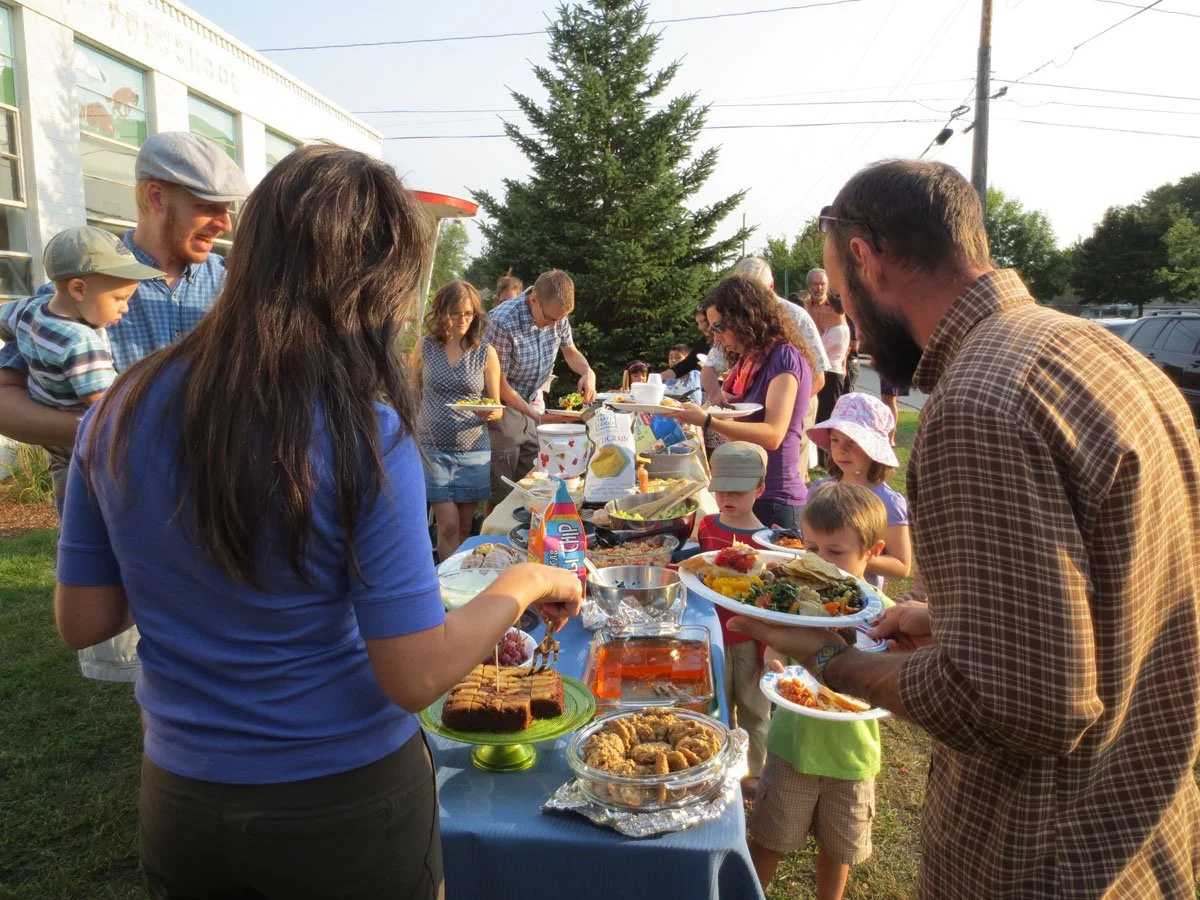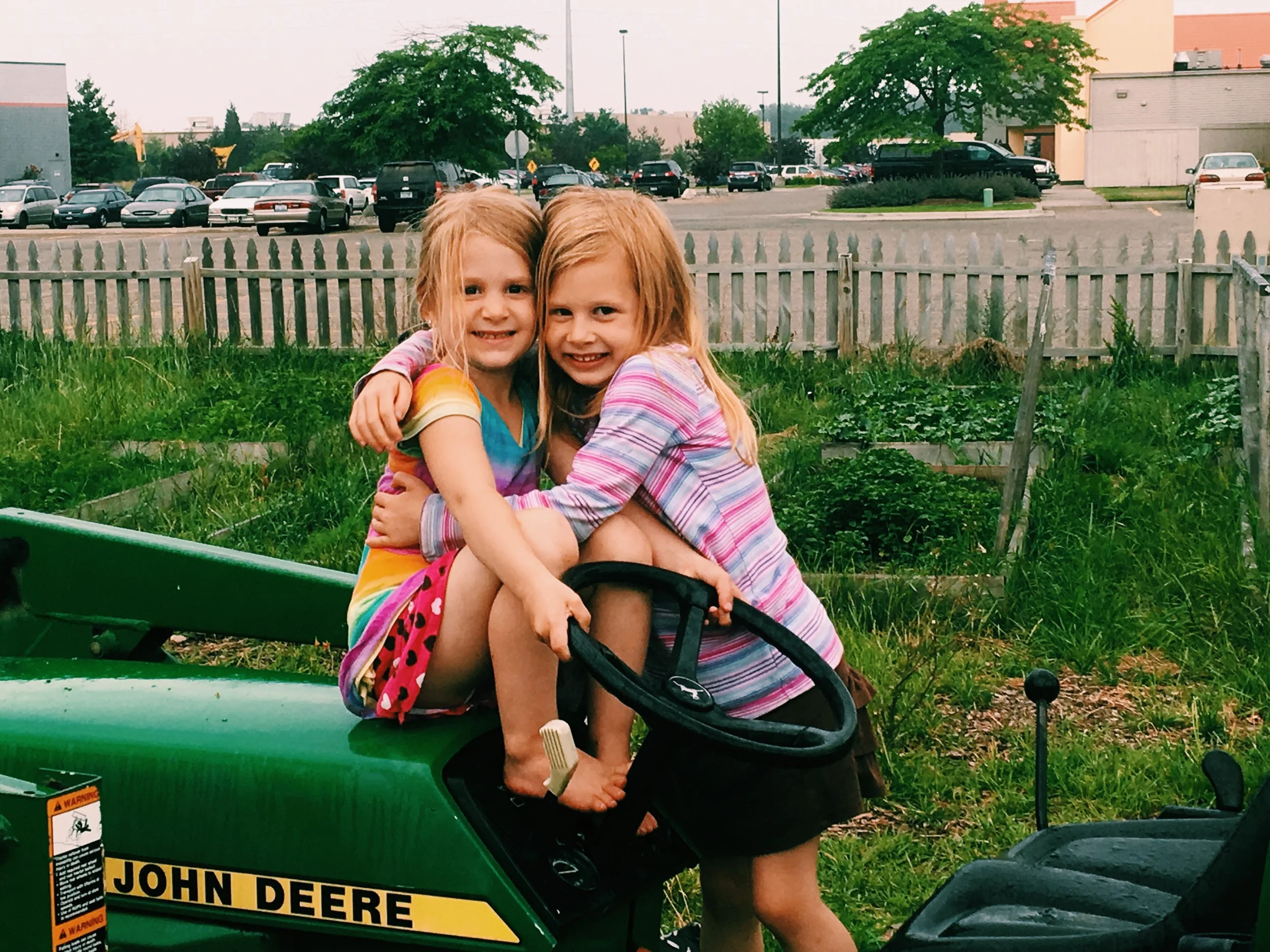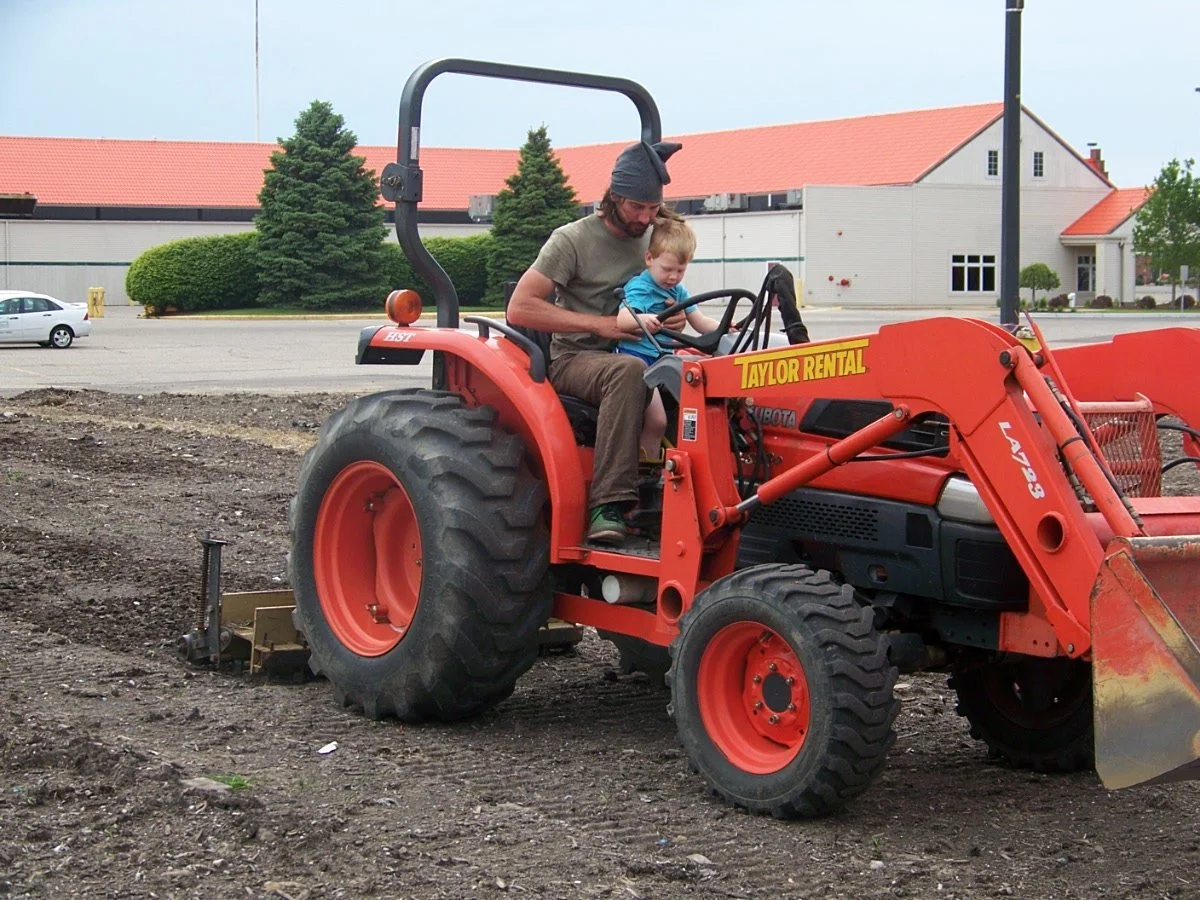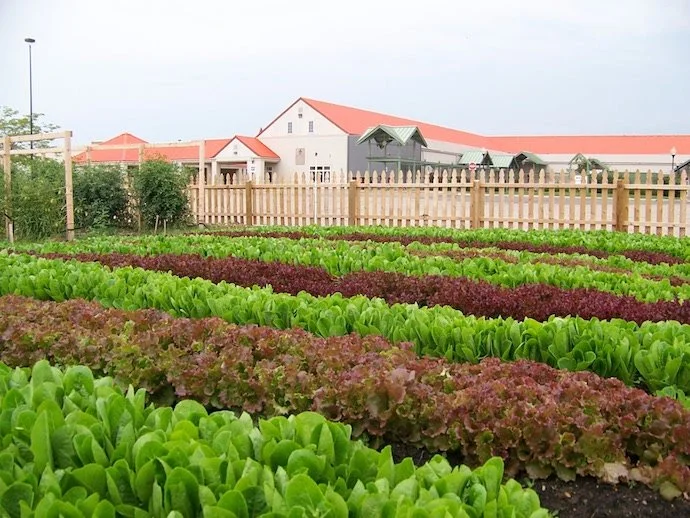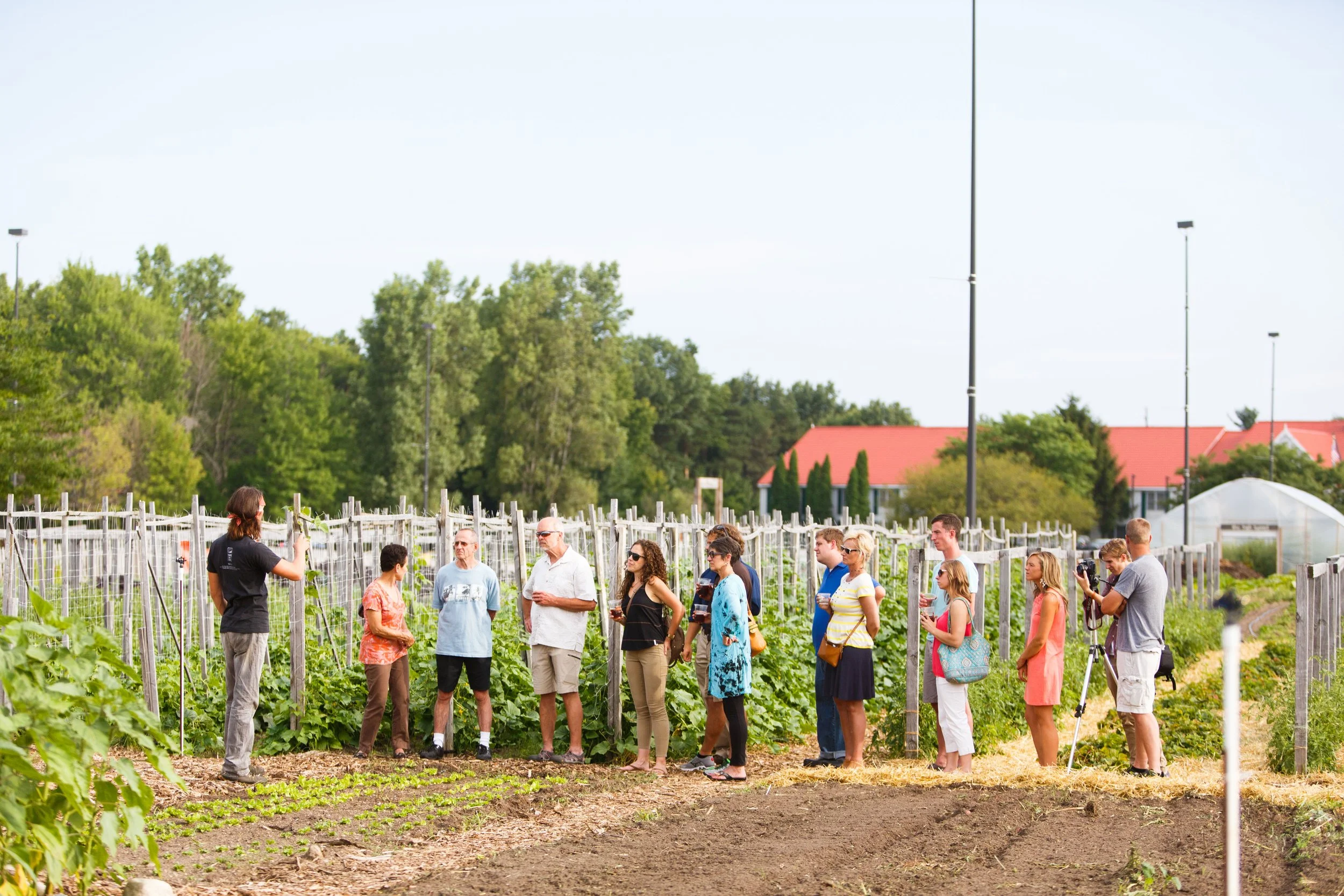
Est. 2010
I started Eighth Day Farm in 2010 as a small CSA on some leased land outside the City of Holland, in Southwest Michigan. Melissa and I were still living in downtown Holland, and Melissa’s 401K was used to build a 20’x30’ hoophouse that took up almost our whole backyard. Melissa was and has always been a saint and a fellow risk taker, letting me pursue one far-fetched idea after another. Because of close relationships with a neighborhood non-profit called 3sixty, we sought the following year to bring the farm into town with the vision to bring the community into even closer contact with their food and with farming. I used to say we were a
“quasi-urban farm” simply because Holland is such a small town, not like Chicago, where I spent some of my childhood. This move was made possible through a generous partnership with Zion Lutheran Church, who provided their former preschool property at 709 Pine Avenue as a farm site. After a year under 3sixty, Eighth Day Farm became its own 501c3 and continued its varied and stacked work in the community around food, including: operating a Community Supported Agriculture (CSA) program, donating produce to other non-profits to address local hunger, donating flowers to care facilities, redirecting local food waste into the creation of compost, employing under-employed neighbors, hosting workshops, farm tours, field trips, college interns, developing the Backyard to Table project in 2014, and developing the Urban Youth Growers program and the New Fast Food in 2016.
In addition to the 709 Pine Avenue location, Eighth Day Farm partnered with the Holland Town Center to reclaim 2 acres of parking lot for a small farm. In 2016 Eighth Day Farm restructured. The CSA began operating solely out of the Holland Town Center location while the Growth Center became the hub of all other program work. And at the end of 2017 I moved on from Eighth Day Farm and they hired a new director.
Initially, we entered agriculture because I saw it as a kind of common denominator with the power to bring change in all these areas I was passionate about: environmental/ecological care, the national health care crisis, community/family isolation or separation, and social justice (particularly as it relates to labor ethics, rights and access to nutritious food). I used to say “What are we rushing around to if we are not rushing to get the dinner table with people we love.” Food is so central to our humanity and our flourishing. Melissa and I loved all the shared meals and the potlucks that marked our years at Eighth Day Farm. They were lean years, as combining nonprofit efforts with farming is about the worst financial marriage on earth, but Eighth Day survived because of the enormous generosity of neighbors and friends. Friends without deep pockets, but with the deepest hearts. Friends being extraordinarily generous. We were even given a vehicle by a neighbor friend (a plumber who also helped with the irrigation system) when one of our many old beaters died. We also had the privilege of hosting numerous people. We had 17 housemates during our 12 years on 18th Street, 4 of them were interns or employees of Eighth Day. It was a community farm in the truest sense of the word. The goal of Eighth Day Farm was really about living into its name.
Early Christians celebrated the “Eighth Day,” the day after the Hebrew Sabbath, for on this day the God-human named Jesus rose from the dead. The term “Eighth Day” (which I borrowed from Christians in the Orthodox tradition) represents the coming of a new day, a distinct period in history that is the beginning of the end of all that is broken and wrong in the world. Or, to state it positively, the “Eighth Day” ushers in a time where we can experience and taste in fresh ways the hope and promise of communion with God and love for neighbor in a world God created beautiful. I wanted a farm to be born out of this vision. A farm not only committed to growing food organically- without the use of synthetic fertilizers and chemical pesticides- but to cultivating human flourishing in every sense and possible way. I have always believed in a union between the spiritual and the physical, and farming epitomized this union.
Eighth Day Farm encouraged us to reimagine what a good life really is. The American dream revolves so much around material prosperity, economic growth, an ever expanding GDP. Our time at Eighth Day challenged this notion with a spiritual vision where the idea of growth was more holistic. We all want some material comforts and we all have some basic physical needs, but as we thankfully become more adept at producing more stuff, should our trajectory be to just produce and consume more and more? Will that prove fulfilling? At a certain point we need a spiritual prudence to intervene and help us discern that instead of a growth model focused on unlimited quantity, we would be better off with a growth model based on quality. We don’t need more jobs, we need more meaningful jobs. Many people don’t need more calories, they need better calories. Maybe the correlation between our accumulation of stuff and our happiness follows a bell curve and after a point more stuff generates more stress. Thoreau once said “A man is rich in proportion to the number of things he can afford to let alone.” I’m no Thoreau, but embracing a philosophy of “enough” is not just a way to help the planet, it is a path to liberating the human spirit.
We had the privilege of meeting Wendell Berry during our time with Eighth Day Farm. For those of you unfamiliar with Wendell Berry, he is the patron saint of small scale, local agriculture; a poetic and prophetic writer who understood that to divorce culture from agriculture spells disaster for communities and planet alike. Berry’s work and life reminds us that conservation of land and air and water hinges on the conservation of human traditions and culture that passes down an affection for place from generation to generation. Berry warned against human hubris, urging us to acknowledge that we must learn what it means to live in “the way of ignorance”- I phrase I absolutely adore. It describes so well the human condition. The way of ignorance says if we don’t know the long term consequences of genetically modifying our food, we don’t jump into it with both feet for short term profit. Wisdom demands humility. Humility helps us appreciate what really matters. Humility brings us back to the earth and connects us to one another.
Post Script.
Sometimes I am asked why I left Eighth Day. Was it the insane hours? I remember working over 90 hours a week for six straight weeks leading up to my third child’s birth in 2012. Was it the low pay? We were always on the waiting list to get into the farmer’s market in Holland, so our farm income was limited to the CSA. I never made more than $25,000 a year. No benefits. We qualified for food stamps. These factors were important, especially the insane hours that meant I was an absentee father. But two other factors weighed heavily into our decision. One involved the mission. I increasingly was passionate about racial justice and how that intersected with food justice, and introduced the idea of a foundation, which I called the Jubilee Response Foundation, as a way for white Christian believers to do justice in the light of historic debts owed to black Americans. This idea gained virtually no traction and I quickly realized that nonprofit work is good at administering charity, but justice work challenges the legitimacy of the claims to the wealth of those on top, and therefore is never going to be funded. This realization killed a lot of my passion for the work I was doing. The other thing that happened was subtle. Melissa and I felt like in the early years of Eighth Day we were growing closer to a group of neighbors, neighbors that became dear friends. This peaked in 2013 and then, as our kids started reaching school age, we noticed that families turned inwards. Sports practices became a thing. Extracurricular activities took up evenings. Potlucks were less attended as individual pursuits took precedence. This waning of our community life along with the realization that we could not change the tide of an entire culture also factored heavily into our decision to make a life change. In January of 2017 we put the invite out to consider something radical- a kind of Christian communal farm. Nine families/individuals came to the initial meeting. Three months into the conversation, we were down to four families. Those four families met regularly for another 5 months, trying to figure out what such a community could look like. Ultimately the conversation ended and that dream died. But during that time, while we were looking for land for the group, Melissa and I stumbled upon a property just north of South Haven. What would become Black Sheep Shelter.
Eighth Day Farm continues on. They dropped the Christian language and mission in favor of a blander, superficially more inclusive phrase- “Loving the land. Loving the people.” No surprise. We still wish them the best! You can visit their website, learn more, or support their work at:
